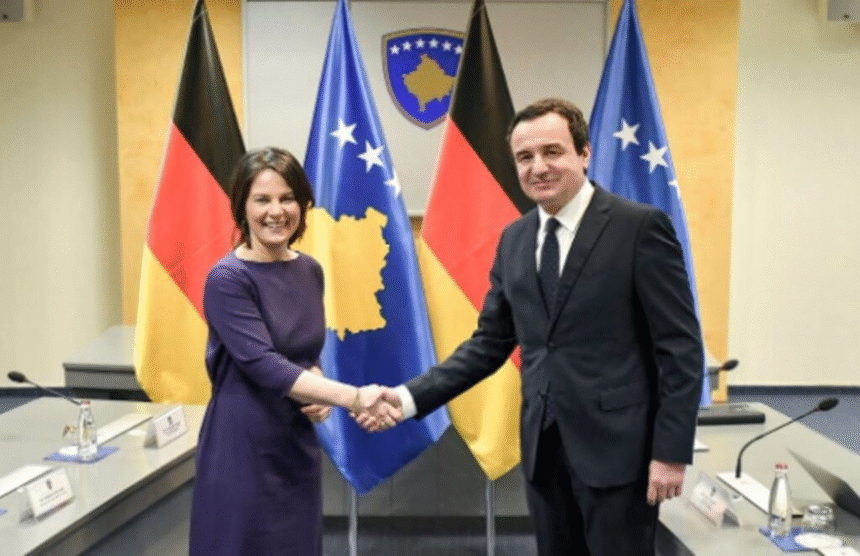Former German Foreign Minister Annalena Baerbock has assumed her new role as President of the United Nations General Assembly. Chancellor Friedrich Merz has made critical remarks regarding this appointment.
Baerbock, 44, a member of the Green Party, remained Germany’s top diplomat until early May, when Merz (CDU) became Chancellor. On June 2, she was elected the new President of the UN General Assembly in New York.
Unlike the usual acclamation, the vote was secret, reportedly at Russia’s request – a small rebuke from Moscow. As Foreign Minister, Baerbock had consistently and openly criticized Russia’s aggression against Ukraine. In the end, she secured 167 out of 193 votes in New York. She has since resigned from her Bundestag mandate.
A role with limited prestige
For one year, Baerbock will lead and organize meetings in New York. The position is not especially prestigious, as it involves extensive behind-the-scenes discussions on topics to be debated in the Assembly.
However, with a new UN Secretary-General set to be chosen next year, Baerbock will help prepare for the election, working with ambassadors from all 193 member states. The current Secretary-General, António Guterres, remains in office until the end of 2026.
Not all German politicians supported Baerbock as she began her mandate. At a CDU regional conference, Chancellor Merz said that “the torturous discussions of recent years with the foreign policy pursued by this lady now in New York” belong to the past.
Baerbock has been direct and polarizing, not only against Russia but also against China. A former member of the previous government (SPD, Greens, FDP), speaking anonymously to DW, described her as “the least diplomatic person I know” to have become Foreign Minister.
The selection of Baerbock
Her appointment did not go smoothly. In March, it was announced that the previous government had nominated Baerbock for the UN post. It had long been known that this position belonged to the Western European and Others Group, and Germany could propose a candidate.
At the end of March, government spokesperson Steffen Hebestreit said Baerbock was “highly qualified for this position.” The nomination was discussed with the incoming government, including Chancellor Merz.
However, Germany had initially assigned Helga Schmid, a highly respected diplomat born in 1960, for the UN post. Schmid had a distinguished career in the Federal Foreign Office and had been head of former Foreign Minister Joschka Fischer’s office. She later played a key role in the 2015 Iran nuclear deal negotiations, which were later disrupted by U.S. President Donald Trump.
Baerbock aims to be a unifying force
After her appointment, Baerbock said in Berlin:
“As President, if elected, I will serve all 193 member states, large and small. As an honest mediator. As a unifying force. With an open ear and an open door.”
During her last trip abroad as Foreign Minister on the Danish island of Bornholm, she added:
“We are in a situation where we are more aware than ever of the importance of our Constitution, fundamental law, the European order of peace, and the UN Charter. The United Nations has existed for 80 years, and its values must be protected and supported every day.”
Her unexpected appointment immediately sparked reactions and irritation. Christoph Heusgen, former Chairman of the Munich Security Conference (MSC), told Berlin’s Tagesspiegel that it was “a violation of protocol to replace Germany’s most experienced diplomat with an outdated model.” Heusgen described Schmid as a better candidate.
Departure of the Greens’ leadership from domestic politics
On Bornholm, Baerbock reflected on her time as Germany’s Foreign Minister (December 2021 – May 2025) as an advantage:
“As Foreign Minister, I traveled extensively, including to regions farther away, like the Middle East. I never imagined visiting Gulf and Arab states more often than EU partners, due to the challenging situation in the region. This also created more intensive connections with these countries.”
Her rise comes as former Vice Chancellor and Economics Minister Robert Habeck also exits domestic politics, resigning from the Bundestag to teach at the Institute for International Studies in Copenhagen. Baerbock and Habeck were the two leading figures of the Green Party, now leaving domestic politics.







